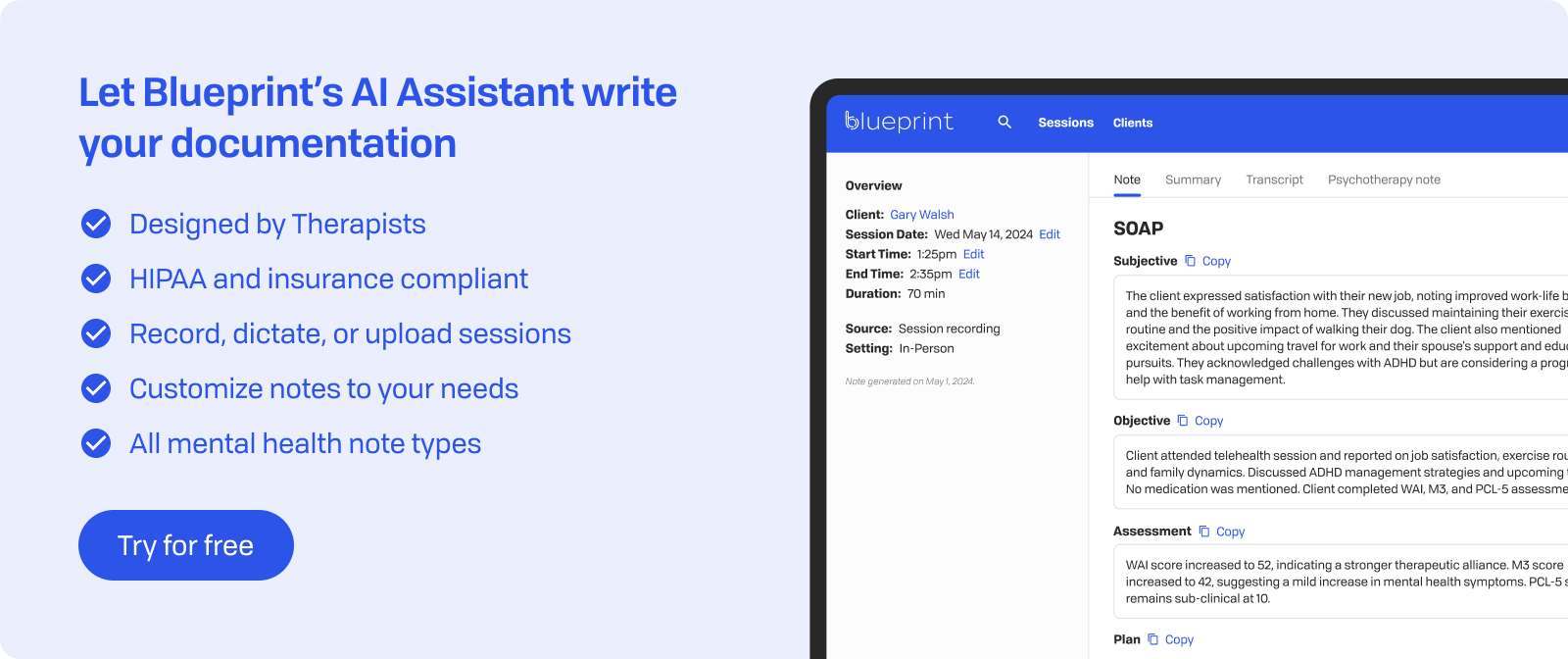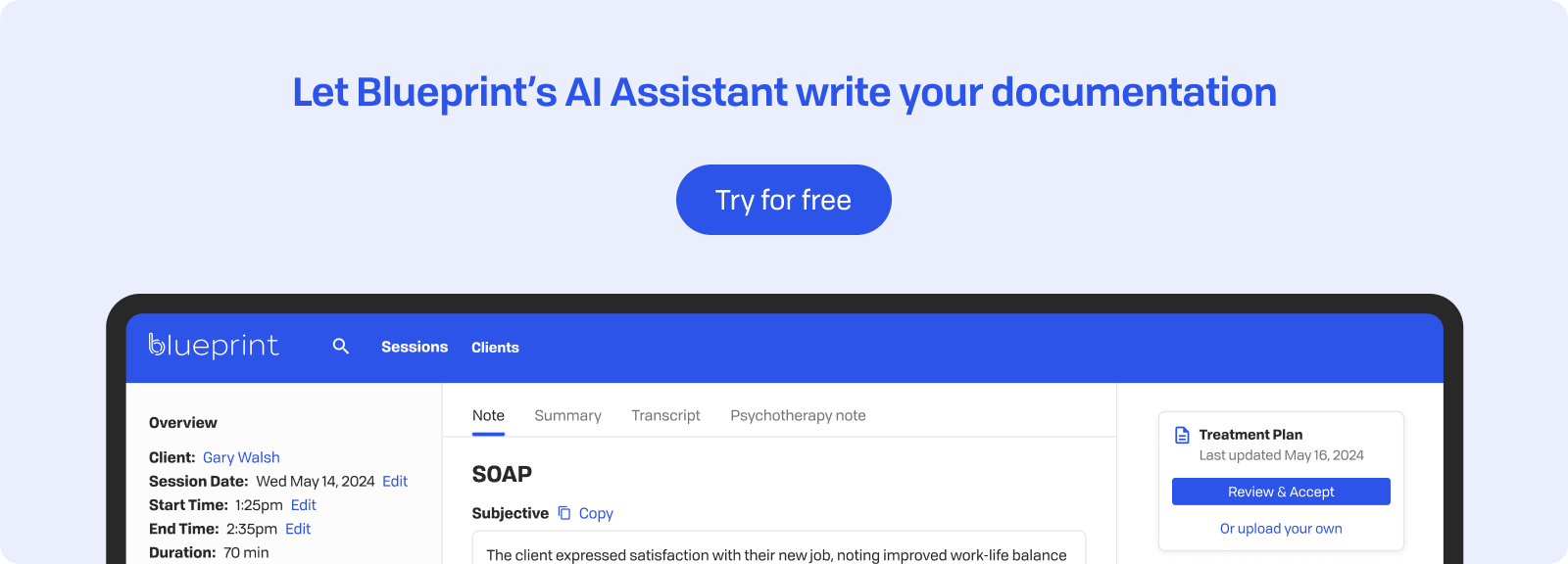In Brief
Choosing a career in therapy offers both emotional fulfillment and financial benefits. Many aspiring counselors feel passionate about helping others but worry about the necessary investment to reach their professional goals. Knowing the true costs upfront lets you plan effectively and avoid unexpected financial hurdles.
Becoming a licensed therapist involves several financial steps beyond tuition. Starting from undergraduate education and moving through graduate school, supervision hours, licensing exams, and ongoing professional development, each phase requires careful budgeting. Without proper planning, these expenses can feel daunting and might lead to stress about your career.
A realistic financial plan allows you to focus on clinical training instead of money concerns. Breaking down each cost component and looking into financial support options help you make informed decisions about your educational path. Let's look at the main investment areas: education, supervision, licensing, and professional expenses.
Education Costs: From Bachelor's to Master's Degrees
Your educational journey typically starts with a bachelor's degree, which lays the groundwork for graduate studies in counseling or psychology. Public in-state universities charge approximately $10,000-$17,000 annually for tuition, while private institutions often range from $35,000-$60,000 per year. Over four years, this amounts to $40,000-$68,000 at public schools and $140,000-$240,000 at private colleges. Unfortunately this is just for tuition, and does not room and board, or meal plans.
Master's programs in counseling, clinical psychology, or social work usually require 60-90 credit hours over 2-3 years. In-state public university programs typically charge by the unit instead of by the year, costing roughly $20,000-$35,000 annually, while out-of-state students might pay $25,000-$45,000 each year. Private graduate programs often charge $30,000-$50,000 per year, though some prestigious institutions exceed $60,000.
Online master's programs have gained popularity, offering flexibility and sometimes lower costs. These programs range from $15,000-$35,000 total, depending on the institution's reputation and accreditation status. However, make sure any online program meets your state's licensing requirements before enrolling.
Beyond tuition, account for additional academic expenses that add up quickly. Application fees average $50-$100 per school, and the GRE costs about $205 plus score reporting fees. Textbooks and materials can total a couple thousand dollars per year, while technology fees and software subscriptions often add another $500-$1,000 annually.

Supervised Clinical Hours and Related Expenses
After finishing your graduate degree, you’ll need between 1,000 to 3,000 supervised clinical hours to qualify for licensure, depending on your state and credential type. Most states require around 2,000-3,000 hours for full licensure, with specific ratios of direct client contact versus other clinical activities.
The financial impact of supervision varies significantly based on your work setting. Many therapists complete their hours at agencies or hospitals that provide free supervision as an employment benefit. However, these positions often pay reduced salaries—typically $35,000-$45,000 annually for pre-licensed clinicians versus $50,000-$65,000 for licensed therapists.
On average, if you work in private practice or settings without included supervision, expect these costs:
- Individual supervision fees: $50-$150 per hour, with weekly sessions totaling $2,600-$7,800 annually
- Group supervision rates: $30-$80 per hour, offering a more affordable option
- Online supervision: Often 20-30% less expensive than in-person sessions due to reduced overhead
Additional expenses during your supervision period include:
- Professional liability insurance: $200-$500 annually for pre-licensed coverage
- Background checks and fingerprinting: $50-$150 per agency
- State supervision registration fees: $100-$300
- Travel costs: Variable based on supervision location and frequency
Oftentimes, practicum sites, clinics, and hospitals will cover your professional liability insurance under their policy, but private practices might require you to purchase your own. Professional associations and university alumni networks often maintain lists of supervisors offering reduced rates. Some supervisors provide sliding scale fees or package deals for purchasing multiple sessions upfront. Group supervision not only reduces costs but also provides peer support and diverse clinical perspectives during this important training phase.

Licensing Applications and Exam Fees
The licensing examination phase involves a significant one-time investment in your therapy career. National exams vary by credential type, with the National Clinical Mental Health Counseling Examination (NCMHCE) costing about $275 and the Marriage and Family Therapist (MFT) exam around $365. Some states require additional jurisprudence or ethics exams, adding $100-$200 to your total exam costs.
State board application fees add another layer of expense that varies widely across jurisdictions:
- Application to sit for exams: $150-$375 depending on your state
- Initial licensure application: $200-$400 (New York charges $371, while some states charge under $200)
- Background check processing: $50-$100 if not included in application fees
- License issuance: $100-$250 once you pass all requirements
Geographic differences greatly affect your total licensing costs. States like California, New York, and Massachusetts typically charge higher fees across all categories, while states in the Midwest and South often have more modest fee structures. Texas, for example, charges $39 for their jurisprudence exam and $161 for LMFT applications—considerably less than coastal states.
Remember to account for test preparation expenses. Study materials range from $50 for basic guides to $500 for comprehensive prep courses. Many candidates also budget for potential re-examination fees, as pass rates for exams like the NCMHCE hover around 60-70% for first-time test takers.
Your total investment during the licensing phase typically ranges from $800-$1,500, depending on your state, credential type, and whether you pass exams on your first attempt.

Ongoing Career Investment: Continuing Education and Certification
Your financial commitment to professional development continues throughout your therapy career. Most states require 20-40 continuing education units (CEUs) every two years to maintain licensure, with costs varying based on format and provider. Online CEUs typically cost $10-$30 per credit hour, while in-person workshops range from $50-$100 per credit hour.
Specialty certifications improve your expertise and marketability but require significant investment, and again, vary greatly by state, and organizations:
- EMDR certification: $1,500-$3,500 for basic training plus consultation hours
- Certified Clinical Trauma Professional (CCTP): $450-$700 for online programs
- Dialectical Behavior Therapy (DBT) intensive training: $1,200-$2,500
- Couples therapy certifications (Gottman, EFT): $800-$2,000 per level
- Psychedelic-assisted therapy training: $3,000-$7,500 for comprehensive programs
Annual professional expenses add up quickly. Professional liability insurance costs $300-$800 annually for licensed therapists, depending on your caseload and practice setting. Association memberships like ACA, NASW, or AAMFT run $200-$400 yearly but often include free CEUs and practice resources.
Conference attendance provides both learning opportunities and networking chances. National conferences typically cost $400-$700 for registration, plus travel and accommodation expenses totaling $1,000-$2,500. Many therapists budget $2,000-$4,000 annually for continuing education and professional development, though early-career clinicians might start with $1,000-$1,500 while building their practice.
Smart therapists make the most of their CE budget through unlimited access packages, early-bird conference rates, and employer reimbursement programs when available.
Financial Support Strategies and Cost Mitigation
Effective financial planning involves looking into funding opportunities that can significantly reduce your education and licensure expenses. Graduate assistantships offer substantial benefits—providing tuition waivers plus stipends ranging from $15,000 to $25,000 annually in exchange for teaching or research duties. Many universities reserve 10-20% of their graduate positions for assistantship roles.
Employer tuition reimbursement programs can cover $5,250 annually tax-free, with some companies offering additional taxable benefits. Community mental health centers, hospitals, and larger group practices often provide these benefits to retain quality staff. Some employers also cover licensing exam fees and continuing education costs.
You can also reduce supervision costs by opting for group supervision formats, university training clinics offering reduced rates, or negotiating package deals. Some supervisors offer sliding scales based on income, while others provide discounts for purchasing multiple sessions upfront. Keep in mind that some state licensing boards require you to have both individual and group supervision, so choosing just group supervision might affect your ability to gain hours. Additionally, shared practice arrangements where multiple supervisees split costs for group supervision can lower individual expenses by 50-70%.
Although varying depending on which administration is in office, Public Service Loan Forgiveness (PSLF) currently stands as the most comprehensive federal program, forgiving remaining federal loan balances after 120 qualifying payments while working full-time for government or nonprofit employers. State-specific programs offer additional relief:
- Minnesota Urban Mental Health Professional Loan Forgiveness: Up to $29,000 annually for psychologists serving in shortage areas
- Georgia Behavioral Health Provider Loan Repayment: Up to $150,000 for four-year service commitments
- General Mental Health Professional Loan Repayment Programs: $10,000-$160,000 for serving Medicaid/CHIP populations in shortage areas
Each program will have different requirements, including the type of work you do, the population you work with, and amount of time you spend in the work. The application process can be complicated, but if you meet requirements, it’s a great way to cut down on student loans and improve your financial situation longer-term.

Total Cost Estimates Based on Different Paths
Knowing the total investment helps you choose the most suitable path for your financial situation. Here are three common scenarios that illustrate the wide range of costs involved in becoming a therapist:
Budget-Conscious Path ($60,000-$80,000 total)
- Public in-state bachelor's degree: $40,000-$48,000
- Public in-state master's program: $30,000-$50,000
- Agency-based supervision with included oversight: $0
- Basic licensing fees and exams: $1,000-$1,500
- Minimal continuing education: $500-$1,000 annually
Mid-Range Investment ($100,000-$130,000 total)
- Private or out-of-state bachelor's degree: $80,000-$120,000
- Online or hybrid master's program: $25,000-$40,000
- Mixed supervision (some paid, some included): $5,000-$10,000
- Licensing and one specialty certification: $3,000-$5,000
- Moderate professional development: $2,000 annually
Premium Path ($150,000-$250,000+ total)
- Private undergraduate education: $140,000-$220,000
- Prestigious private master's program: $60,000-$100,000
- Individual paid supervision throughout: $15,000-$25,000
- Multiple certifications (EMDR, DBT, couples therapy): $5,000-$10,000
- Extensive conference attendance and training: $4,000+ annually
These estimates show how educational choices add up throughout your journey. Early decisions about undergraduate institutions significantly impact your total debt load. The difference between paths often exceeds $100,000, making financial planning important from the start. Consider your career goals, desired specializations, and realistic earning potential when selecting your educational path.
Key Takeaways
Pursuing a career as a therapist involves a significant financial commitment, covering expenses for education, licensure, and ongoing professional development. The total costs can vary greatly depending on your choices—ranging from about $60,000 for an economical in-state path to over $150,000 for premium educational routes with extensive certifications.
There are smart financial strategies that can help reduce your costs:
- Graduate assistantships: Offer tuition waivers plus annual stipends of $15,000-$25,000
- Group supervision: Reduces supervision costs by 50-70% compared to individual sessions
- Public service programs: Provide loan forgiveness from $10,000 up to complete federal loan discharge
- Employer benefits: Cover up to $5,250 in annual tuition reimbursement tax-free
- State-specific programs: Offer $29,000-$160,000 for working in shortage areas
Starting financial planning early can help avoid overwhelming debt and career stress. Creating a realistic budget that considers reduced income during supervision years aids in a smooth transition. Setting aside emergency funds to cover 3-6 months of expenses protects against the income fluctuations common in the early years of practice.
Knowing these financial aspects helps you make informed decisions about your educational path and specialization choices. Whether you opt for a budget-friendly route through public institutions or choose to invest in prestigious programs with multiple certifications, understanding the costs upfront allows for strategic planning. Investing in becoming a therapist offers benefits through a fulfilling career helping others while achieving financial stability for yourself.











